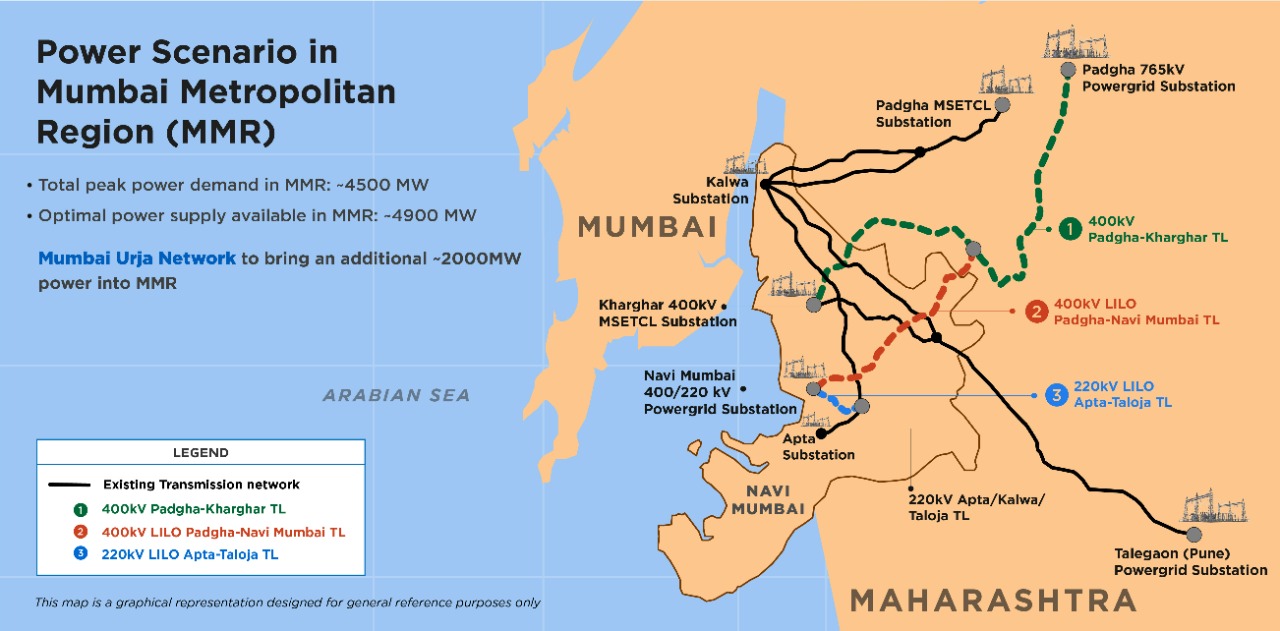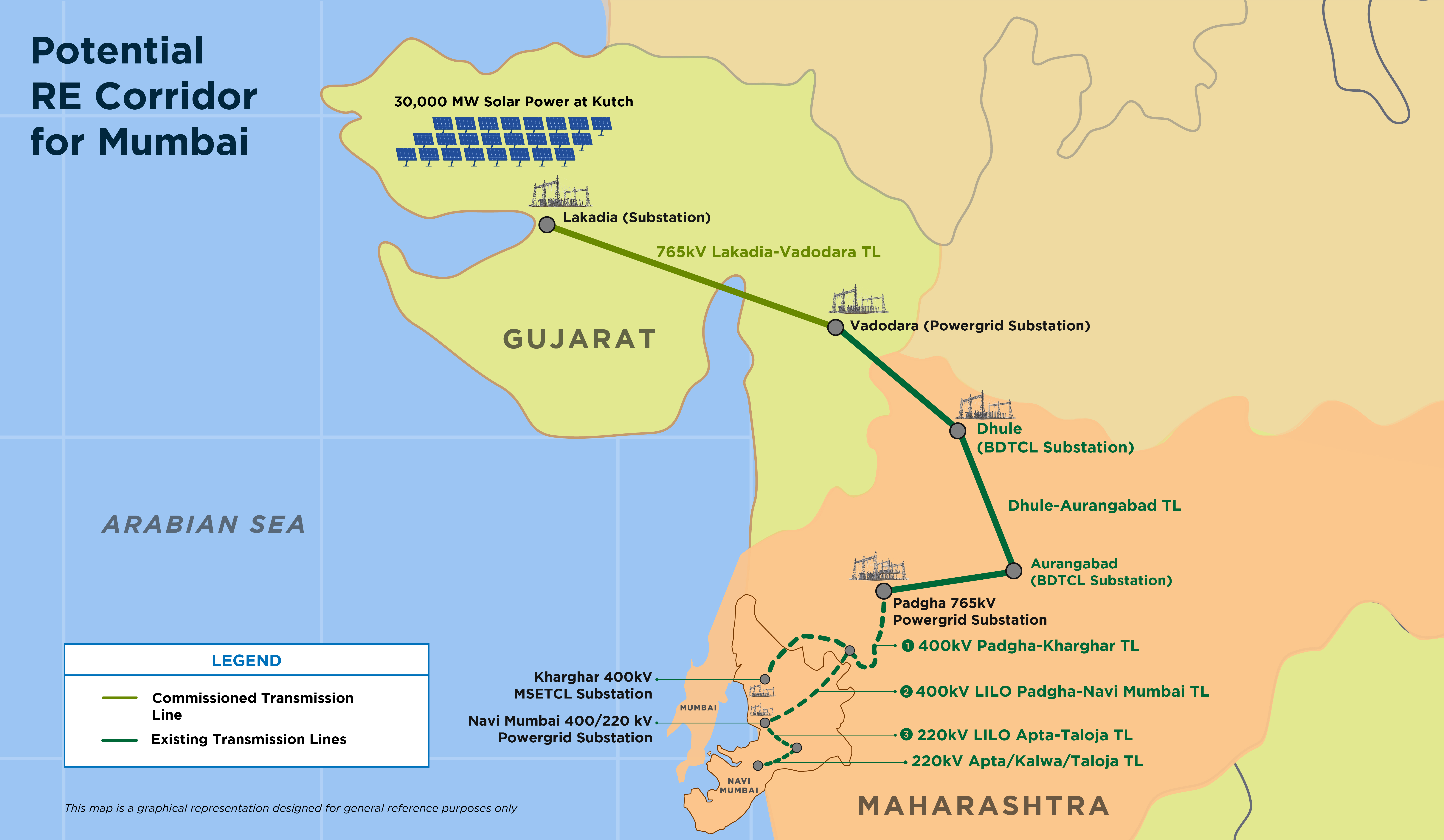PROJECT IMPACT
Project Impact

Critical Energy Lifeline for Mumbai Metropolitan Region
With accelerated growth under the trillion-dollar economy ambition, power demand in MMR is expected to increase exponentially. Currently, the peak power demand in Mumbai Metropolitan Region is around 4500 MW; partly met through the 1877 MW power generated in Mumbai while the remaining power is catered from outside Mumbai through the current transmission network. However, it is close to its full capacity in terms of utilization. This means that in case of outage of any transmission line (due to fault or maintenance), the system operates in a critical state where any further tripping (of lines or internal generation in Mumbai) can result in a load shedding or a blackout situation. The October 2020 event is a case in point. In view of this situation, it is imperative to strengthen the existing transmission network through additional ISTS feed.
Mumbai Urja Marg Transmission project will help establish a critical energy lifeline for Mumbai Metropolitan region that will have the potential to carry more than 2000 MW of additional ISTS feed. The project will also help in decongesting its present transmission network which will enable increased power flow in the region as well.

Support Navi Mumbai’s ambition to emerge as a Data Centre Hub
Navi Mumbai is rapidly emerging as the choice of destination for Data centers. With load requirement of ~330 MW, data centres are energy intensive. One of the key requirements of these data centers is, therefore, availability of continuous, reliable, and quality power.
Mumbai Urja Marg Limited Transmission Project, by decongesting present transmission network of the region and establishing an additional in-feed capacity, will efficiently cater to the growing energy needs posed by the emergence of data hubs

Affordable Power by easing transmission constraints
Transmission constraints remains a long-standing problem in MMR limiting procurement options from outside and increasing reliance on internal generation sources within the region. These generating stations enable islanding of Mumbai grid in case of a grid disturbance, but on the other hand, they may not be always the cheapest source of power, which can otherwise be sourced from outside, should a sufficient and reliable transmission interconnection be available. Strengthening the transmission interconnection, will open
possibilities and options for the discoms to source cheaper power from other sources, which can help optimize the cost of power for consumers in the region.
Mumbai Urja Marg Transmission project will address Mumbai’s long-standing transmission constraints as well as enhance flexibility in power procurement for Mumbai. Distribution licensees will be in a strong bargaining position in terms of power procurement agreements.

Potential RE Corridor to support energy transition to RE
Mumbai aims to meet 25% of its electricity demand through renewables by 2025. However, currently 95% of Mumbai’s power requirement is met through thermal power with only 5% is coming from RE sources. As seen in the adjoining picture, a large amount of RE power generation is coming up in the state of Gujarat, which shall be getting evacuated up to Powergrid’s 765 kV substation at Padgha.
Mumbai Urja Marg Transmission project will provide the last mile connectivity from Padgha to Kharghar & Navi Mumbai substations. As a result, a significant portion of power demand in the Mumbai Metropolitan region could be met through RE power, in the coming years.

